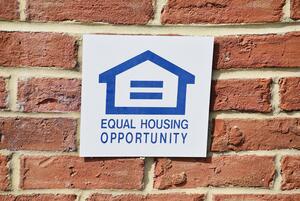The Fair Housing Act (FHA), also known as the Civil Rights Act of 1968, came about in order to protect people who are renting or buying, applying to get a mortgage, or applying for housing assistance from discrimination.
The Act, signed into law by President Lyndon B Johnson and enforced by the Department of Housing and Urban Development (HUD), was first established to protect against race, color, and national origin. Discrimination due to sex was added to the Act in 1974, and discrimination due to disabilities and familial status was added in 1988. The disabilities aspect is further broken down and indicates that discrimination due to mobility and visual, hearing and cognitive disabilities are all illegal. Property owners cannot refuse occupancy due to any type of disability. Furthermore, property owners must in fact make “reasonable” accommodations and modifications to allow the disabled person to use the property. These modifications are at the property owner’s expense. Some of these modifications might include adding a wheelchair ramp or widening a doorway.
Per HUD guidelines, residential properties for rent or sale must have the equal housing opportunity logo or a statement alerting people of the availability of the property to anyone interested in purchasing or renting.
What type of housing is covered by the Act?
Nearly all housing is cover by the FHA. In some circumstances, owner occupied houses with a maximum of four units may be exempt. Housing rented or sold without an agent or operated by a private “members only” club may also be exempt.
What is considered illegal discrimination in house sales and rentals?
Below we highlight a few actions not allowed based upon race, color, national origin, sex, familial status and disability:
- Refusal to rent or sell housing
- Set different terms or conditions for a sale or rental
- Telling someone the property is no longer available when it actually is
Under the FHA, it is also illegal to discriminate in mortgage lending. The following are examples of illegal actions based upon race, color, national origin, religion, sex, familial status and disability:
- Refusing a loan or financial assistance for a home
- Provide loan terms with a different interest rate or fees
- Appraising a home differently
During the implementation of the Fair Housing Act, discrimination was running rampant. The housing market was no exception. There were attempts of complete segregation in neighborhoods and flat-out refusals to rent or sell to people that were more than qualified, but denied due to race, religion, etc. Since the Act became effective, discrimination in housing has certainly decreased. However according to the National Fair Housing Alliance (NFHA), there are still thousands of discrimination complaints each year. More than half of those complaints are based upon disabilities.
If you think you have been discriminated against when trying to purchase or rent a home, speak to a lawyer or file a complaint with HUD (HUD.gov) or with the NFHA.

